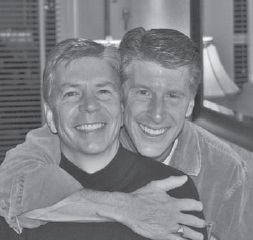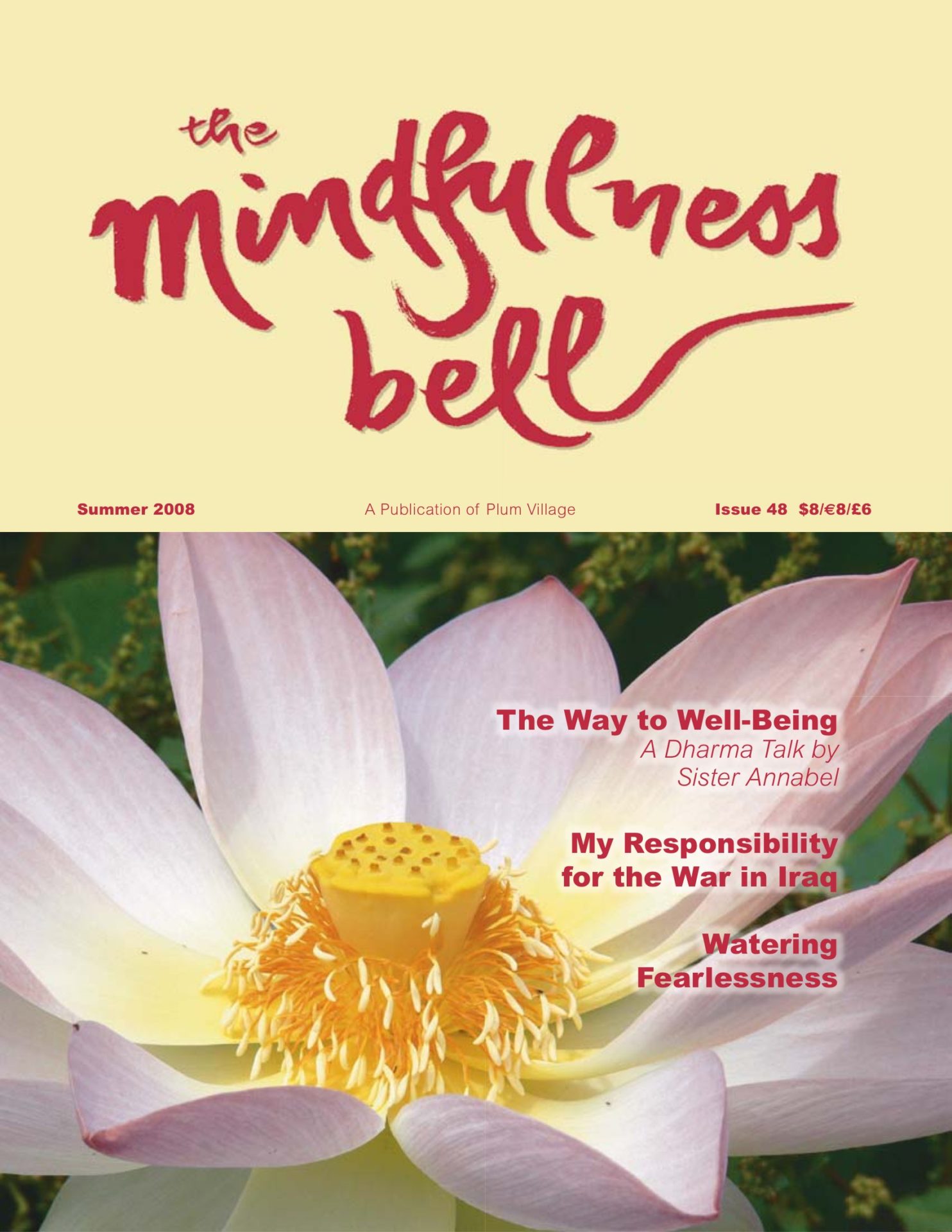By Brian McNaught
The question is asked frequently of middle-aged American male visitors, “Is this your first time in Vietnam?” It generally means, “Did you fight in the war?”
My spouse and I were asked the same question by the U.S. Senator who sat next to us at breakfast in the Hanoi hotel in which we were all staying. The depth of our answers depends upon the questioner.
With Senator Jim Webb (D-VA),
By Brian McNaught
The question is asked frequently of middle-aged American male visitors, “Is this your first time in Vietnam?” It generally means, “Did you fight in the war?”
My spouse and I were asked the same question by the U.S. Senator who sat next to us at breakfast in the Hanoi hotel in which we were all staying. The depth of our answers depends upon the questioner.
With Senator Jim Webb (D-VA), who was visiting Southeast Asia with his Vietnamese wife, and who offered that he had fought in DaNang, our next destination, we simply said, yes. I explained that I was in Hong Kong to do a series of presentations to Wall Street executives on gay workplace issues, and that we came to see Vietnam and Cambodia because we had heard they were beautiful countries. That was the truth, but the answer was incomplete.
We didn’t want to agitate his painful memories, evidenced by the ever-so-subtle wince I witnessed when we mentioned DaNang. Knowing how emotionally torn and scarred Vietnam vets can be, I generally say very little in their presence about my early and consistent perspective on that war.
To our Vietnamese questioners, however, I quickly and gladly explained that yes, this was our first visit, and that we both had actively and vigorously opposed the war. I, in fact, was a conscientious objector, a status that was achieved after a hard-fought battle with my draft board and with my family, that was inspired by my spiritual beliefs, and that I have never regretted. The Vietnamese, regardless of age or gender, always smiled and enthusiastically said thank you.
A Difficult Position
It was remarkable and surprising how good their response made me feel. It was nearly forty years ago that I passionately marched, wrote, and voted against the war. I had imagined that my feelings about the personal and national conflict would have been forgotten or irretrievably buried.
My unflinching public opposition to the war in 1970 was conceived and nurtured by, among other factors, my attraction to the Sermon on the Mount, the lives of Gandhi and Francis of Assisi, the books Mr. Blue and Hiroshima, the protest folk songs of the 1960s, the courage of the Berrigan brothers, and the selfsacrifice of Thich Quang Duc, the sixty-six-year-old Buddhist monk who self-immolated on the streets of Saigon. My idealism at the time felt very strong, pure, and just. Yet, my position was painfully called into question by my love for a cousin who was a helicopter pilot in the war, by friendship with fraternity brothers who were in ROTC, by romantic patriotism, by admiration for the sacrifices made by those who fought against the atrocities of the Nazis. I also harbored doubts about my answer to the draft board that I couldn’t respond to their hypothetical question: would I use force to stop someone from raping my mother?
Spending several days in DaNang, reflecting on what Americans call the Vietnam War and the Vietnamese call the American War, can be a deeply challenging, but nevertheless healing process both for those Americans my age who fought in it and for those of us who fought against it. But they are feelings that we have rarely talked about to each other. I’m just assuming that Senator Webb would have been pained by my early resistance to the war, just as I’m assuming that he lacked any awareness of how deeply affected people like me were by those times.
Losing Peace
When I walked in the surf outside our luxury hotel, among teenagers playing soccer, I tried to imagine what it might have been like for my peer group in 1970 when I did my alternative service at a Catholic newspaper in Michigan. Many of them served and died where I was now vacationing.
My father walked in the surf with me during my silent reflections. Though he has been dead for a dozen years, I felt his presence powerfully. Dad was so completely embarrassed and ashamed by my refusal to fight in the war that at age fifty-seven he threatened to either commit suicide or re-enlist in the Navy. His very angry glare at me at that moment remains one of my most enduring memories of him.
Though I didn’t lose my life, a limb, or my sanity as a result of the war, as so many others my age did, I lost the respect of my father and of many of his generation. I also lost the peace in my own life that I sought to secure for others by my actions. Once I left the comfortable environs of my socially conscious, Catholic college campus and entered the multi-generational work world, I was immediately immersed in an emotionally-fractured culture populated by friends who had lost friends or sons in the war. Debating the war’s merits with them or with others never seemed like a mindful thing to do. I lived in fear of exacerbating the pain of others in my youthful need to justify my position. I thus lived alone with the most soul-searing and divisive public position I had ever dared to take.
As I made my way down the beach at DaNang, imagining battleships and machine-gun fire, I wondered if my father’s perspective on the war and on my decision had changed with time. We never talked about it. It seemed no one wanted to talk about it. The past was best left in the past.
Even though reminders of the war abound in this country, from the concrete bunkers that dot the landscape to the 400,000 children disabled by Agent Orange, Vietnam is healing and thriving. The war that did so much damage to their families and to mine is not on the minds of those who are thirty years old and younger. These “baby boomers” talk enthusiastically about their futures, wave and smile happily in response to friendly gestures from Americans, and refer excitedly to what they recently read on AOL about US-Vietnamese economic cooperation. The past is indeed past for them, even if they are curious about that of their middle-aged male visitors.
From Vietnam to Iraq
Here at home in the States, young ones are thinking about the Iraq war, which our government calls “nation building” and the Iraqis call the “American occupation.” There is no draft today, so young people in the U.S. are not forced by law to make life-altering moral decisions about the war in Iraq or any other military venture. They don’t have to fight to prove to a doubting draft board that they are truly conscientious objectors. This is a good thing in many ways, as it frees them to pursue countless other means of making a contribution to society. On the other hand, being forced to take a personal moral position on war is not bad for the soul.
If today I was forced to make a decision about fighting in Iraq, my position would be guided by the Tao Te Ching, the teachings of the Buddha, the writings of Thich Nhat Hanh and Pema Chodron, and by my personal experience of creating my own suffering and my own happiness. I would still choose to be a conscientious objector but at age sixty, I’m far less romantic and idealistic than I was at age twenty, far more able to see the shades of gray. I can see how situations can dictate personal ethics. I would, for instance, now state clearly to the draft board that I would protect my mother or any person from being raped or assaulted, by any
means possible, even if it meant losing my conscientious objector status. On the other hand, I’m far more conscious and careful today about protecting the life of spiders, flies, ants, and worms than I was in my late teens and early twenties.
Though I don’t have children of my own, I do have a young nephew who has decided to enlist in the Marines as soon as he graduates from high school next year. David’s decision does not embarrass or anger me. He will never have to recall a searing glare from me. But I do feel that he is far too young to make a mature decision about participating in a war and I’m at a loss on how to help him understand the lifelong emotional ramifications of that action.
I don’t know how David feels about the prospect of going to Iraq, or what prompted his decision to become a Marine. We’re not that close. I do know that he’s really good at paint ball competition and that he imagines he will be very good with a gun. He’s the product of a single-parent household and he needs discipline, a college education, and a secure financial future, like so many of his peers who enlist not to fight in Iraq but to survive in the United States.
For whatever reason one decides to fight or not fight in a war, regardless of whether or not there is a draft, the effects of the choices we make in our youth will impact us profoundly for the rest of our lives. Forty years from now, when my nephew David visits the Middle East as a middle-aged tourist, he will undoubtedly be asked, “Is this your first time in Iraq?” It’s my hope that his answer, and those of his generation, brings forth in him and in his questioner feelings of peace.
Brian McNaught is a best-selling author and a corporate diversity consultant on gay and transgender issues in the workplace. He and his spouse, Ray Struble, divide their time between Ft. Lauderdale, Florida, and Provincetown, Massachusetts.


